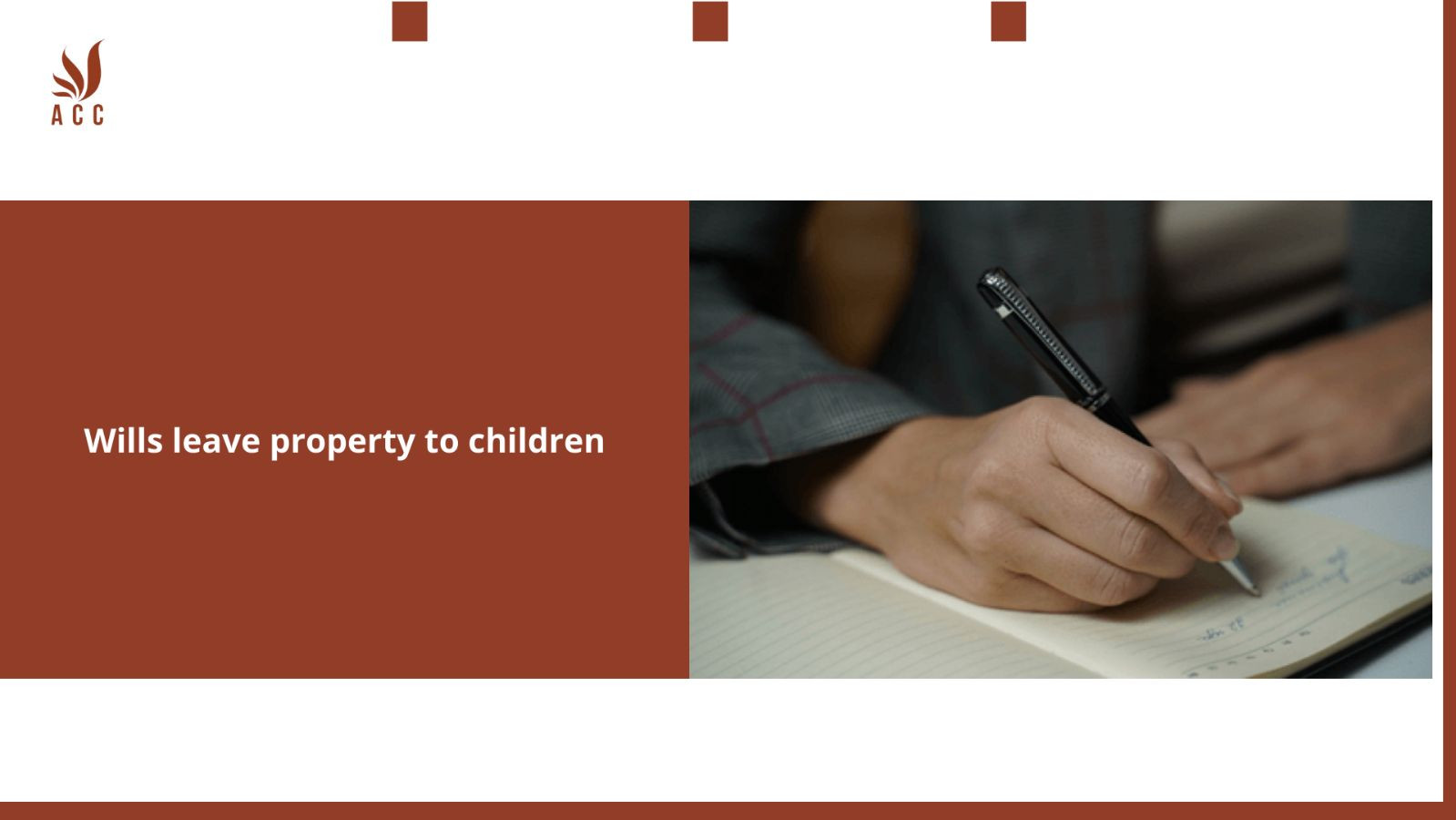I. Wills leave property to children
A will that leaves property to your children is a legal document that outlines your wishes regarding the distribution of your assets, including property, to your children after your passing. Here's a sample template for such a will:

Last Will and Testament
I, [Your Full Legal Name], being of sound mind and understanding the significance of this document, hereby declare this to be my Last Will and Testament. This will covers the distribution of my property and assets to my beloved children.
Article I: Executor Appointment
I nominate and appoint [Executor's Full Name], residing at [Executor's Address], as the executor of this will. I trust that my chosen executor will carry out the provisions of this will faithfully and in accordance with the law.
Article II: Property Distribution to Children
I bequeath the following property and assets to my children, [Child 1's Full Name], [Child 2's Full Name], [Child 3's Full Name], in equal shares:
-
Real Property: [Specify the full legal description of any real property you wish to bequeath, including its address and any relevant details.]
-
Personal Property: [Specify any personal property, such as vehicles, jewelry, or other possessions, that you wish to distribute among your children.]
Article III: Special Conditions (if applicable)
I may have additional conditions or instructions regarding the use, management, or transfer of the property. These conditions are as follows: [Specify any special conditions or instructions, if applicable.]
Article IV: Guardianship (if applicable)
If any of my children are minors at the time of my passing, I nominate [Guardian's Full Name], residing at [Guardian's Address], to serve as their legal guardian. I trust that my chosen guardian will provide for the well-being and care of my children.
Article V: Revocation of Prior Wills
I hereby revoke all previous wills and codicils made by me.
Article VI: Governing Law
This will shall be governed by and construed in accordance with the laws of [Specify Jurisdiction].
In Witness Whereof, I have signed my name to this Last Will and Testament on this [Date] day of [Month], [Year].
[Your Full Legal Name] (Signature)
II. When using ACC Law Firm's testament, entrepreneurs will receive
III. Q&a
Q1: Can I leave my property to my children through a will?
A1: Yes, you can leave your property to your children through a will. A will is a legally binding document that allows you to specify how your assets, including property, should be distributed after your death. You can name your children as beneficiaries and outline their share or specific property they will inherit.
Q2: Are there any legal requirements or limitations when leaving property to children in a will?
A2: There may be legal requirements or limitations when leaving property to children in a will, depending on the jurisdiction. Some common considerations include:
1. Age of inheritance: If your children are minors, you may need to appoint a guardian or set up a trust to manage the property until they reach a certain age, as minors may not have the legal capacity to manage property themselves.
2. Other legal heirs: In some jurisdictions, there may be laws that entitle certain family members, such as spouses or dependents, to a portion of your estate, which could affect the distribution of property to your children.
3. Property ownership: Ensure that you have legal ownership of the property you intend to leave to your children, as you cannot leave property that is not legally yours.
Q3: Can I specify conditions or restrictions on how my children can inherit the property?
A3: Yes, you can specify conditions or restrictions on how your children can inherit the property through your will. These conditions or restrictions are known as testamentary trusts or conditional bequests. For example, you can stipulate that the property should only be transferred to your children upon reaching a certain age, achieving specific milestones, or meeting certain requirements.
Q4: What happens if I don't have a will when leaving property to my children?
A4: If you don't have a will when leaving property to your children, the distribution of your assets will be governed by the intestacy laws of your jurisdiction. These laws typically prioritize spouses, children, and other close relatives in the distribution of your estate. However, the specific rules vary depending on the jurisdiction, and the distribution may not align with your wishes. To ensure your property is distributed according to your preferences, it is advisable to create a valid will that clearly outlines your intentions.
Nội dung bài viết:






Bình luận